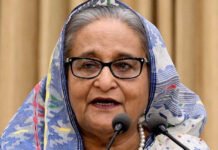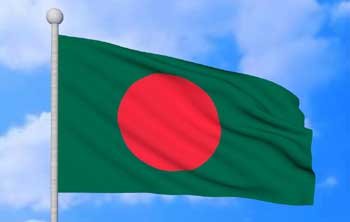The United Nations is sending a human rights team to Bangladesh following a recent surge in violence. The team’s focus will be on investigating attacks on the Hindu community and their places of worship. This development comes after significant political shifts in Bangladesh, which have led to widespread unrest and targeted attacks against Hindu and other minorities.
UN Human Rights Team to Visit Bangladesh Next Week
Amidst ongoing turmoil, a UN human rights delegation is scheduled to visit Bangladesh in the coming week. Their agenda includes meeting with the interim government in Dhaka to discuss and investigate recent human rights violations. The UN’s involvement highlights the severity of the situation, underscoring the international community’s concerns about the safety and rights of minority groups in Bangladesh.
Addressing the Need for Accountability
Farhan Haq, the Deputy Spokesperson for UN Secretary-General Antonio Guterres, emphasized the importance of accountability during this investigation. Haq noted that UN Human Rights High Commissioner Volker Turk has been in discussions with the Bangladeshi government regarding the assistance and accountability measures provided by the UN Human Rights Office. The goal is to ensure that those responsible for the violence and human rights abuses are held accountable.
Exploring Modalities for Investigating Human Rights Violations
The visiting UN team will focus on establishing clear methods for investigating the recent violence in Bangladesh. Haq explained that the discussions would center on the areas of assistance and the specific modalities required for a thorough investigation. Volker Turk reinforced the importance of conducting a comprehensive, impartial, and transparent inquiry into all reported human rights violations. Such an investigation is seen as a crucial first step in addressing the ongoing unrest and restoring order in Bangladesh.
Escalating Attacks on Hindus and Temples
Reports from the Office of the High Commissioner for Human Rights indicate a disturbing rise in attacks on the Hindu community and their temples since the resignation of Prime Minister Sheikh Hasina. These incidents have further destabilized the country, drawing international concern and calls for immediate action. The targeted violence against Hindus is seen as a direct result of the political vacuum and the subsequent power struggle in Bangladesh.
Widespread Destruction Across 27 Districts
On August 5-6, attacks on Hindu homes and temples were reported across 27 districts in Bangladesh. The violence included looting, vandalism, and arson, with many Hindu families and religious sites suffering significant damage. One of the most notable incidents occurred at the ISKCON temple in Meherpur, located in the Khulna Division, where the temple was vandalized and set ablaze. These attacks have left the Hindu community in fear, calling into question the effectiveness of local authorities in protecting minority rights.
Interim Government’s Stance on Human Rights
In response to the escalating violence, interim government leader Muhammad Yunus has stated that human rights are the cornerstone of his administration. He has emphasized the government’s commitment to the safety and security of all citizens, regardless of their religious or ethnic background. Yunus has also sought the cooperation of the United Nations in maintaining and upholding human rights during this turbulent period.
A Call for International Oversight and Support
The involvement of the UN in investigating these incidents is a significant step towards ensuring that the violence is not overlooked and that those responsible are brought to justice. The international community is closely monitoring the situation, and the upcoming UN investigation is expected to play a critical role in bringing much-needed accountability and justice to the affected communities in Bangladesh.
This investigation serves as a reminder of the importance of international oversight in situations where minority groups are at risk. The UN’s actions will likely set a precedent for how similar situations are handled in the future, emphasizing the global community’s responsibility to protect human rights wherever they are threatened.
















